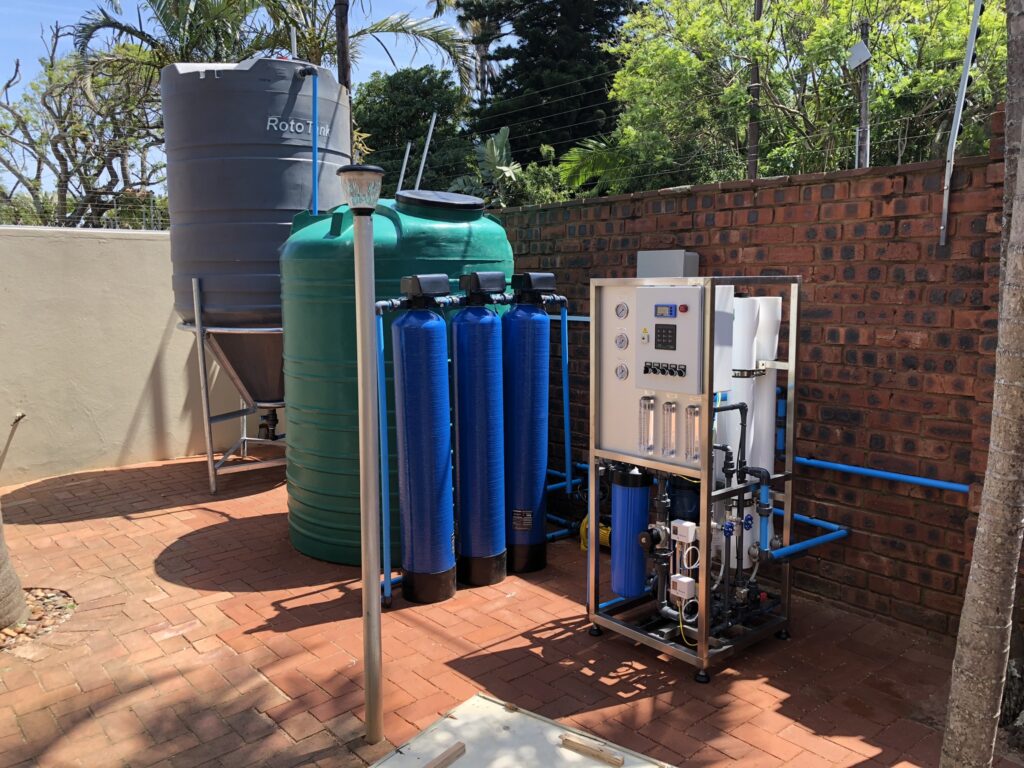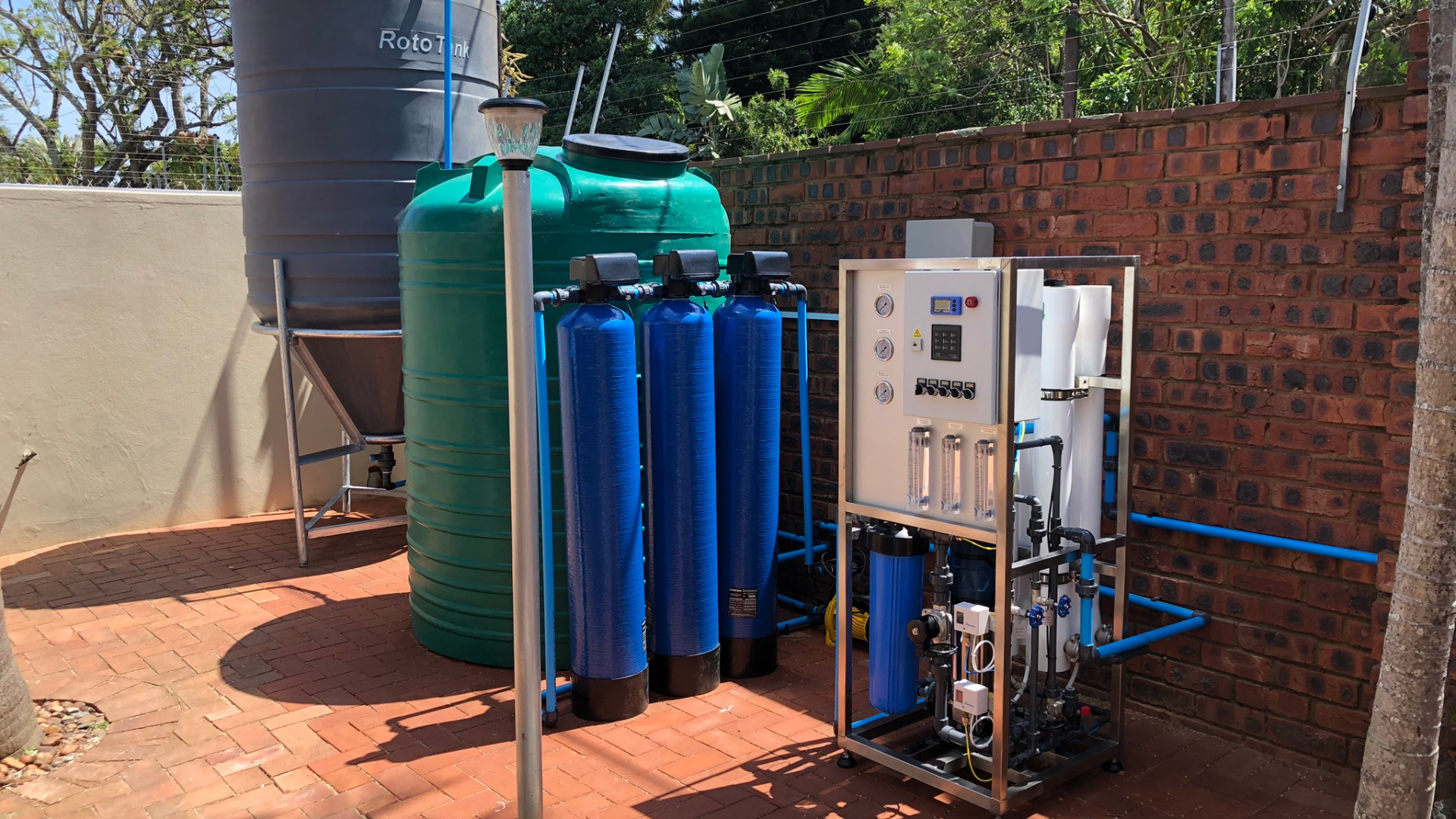South Africa is a water scarce country to start with, but as parts of the country have been hit by droughts, floods, service delivery failures and other challenges over the past few years, the demand for domestic water treatment solutions has increased.
“People want to guard against water outages, but also have control over the quality of their potable water,” says Lionel Maasdorp, MD at Allmech, a leading South African manufacturer of boilers and supplier of water treatment components. “There’s also a move to prioritise water conservation, so we’re seeing households implementing rainwater harvesting systems, boreholes, greywater systems, tanks that store municipal water, or a combination of these.”
One of Allmech’s customers, Pure Blue Water Purification, located in Durban, offers turnkey water treatment solutions for a wide range of residential, commercial, and industrial applications. With more than 40 years of experience, the company offers services ranging from the identification, establishment and maintenance of water purification systems, to bottling plants, harvesting of rainwater, as well as a range of recyclable water services.
Vincent Gregory, director at Pure Blue Water Purification, says his company recently installed a domestic water treatment system for a customer battling with intermittent water supply.
“The site is a complex situated close to the sea, where we are supplying clean drinking water according to SANS 241,” Gregory explains. “Originally, the water was full of iron and manganese, and had an acidic pH and sulphur odour, with a high concentration of salts.”
Maasdorp explains that, for drinking purposes, water needs to be treated with mechanical filtration to comply with the potable drinking water standards in South Africa (SANS 241: Drinking Water Quality Requirements). “Water quality will differ from site to site, which is why testing against SANS 241 is critical. Proper treatment can then deal with common water quality issues, including microbiological contamination, hard water, nitrate concentration, high sediment levels, high iron / manganese content, conductivity and low pH,” he says.
In the seaside complex’s case, there were several issues that needed to be resolved, which meant the solution required several processes in place. Using aeration, pH adjustment, iron and manganese removal, as well as reverse osmosis for the salts, and sterilisation, Pure Blue Water Purification was able to meet the required drinking water standards.
“Utilising Allmech fibre-wrapped polyethylene cylinders (FRP) vessels, and their Runxin auto-backwash filter valves and ceramic ball valve on a timer to dump excessive iron, we were able to ensure we met the customer’s needs,” says Gregory. “This was the only method that would eliminate all the problems and result in drinkable water. We sourced the components from Allmech because of the quality of their equipment, as well as its availability. They also offer sustained support and automation options.”



